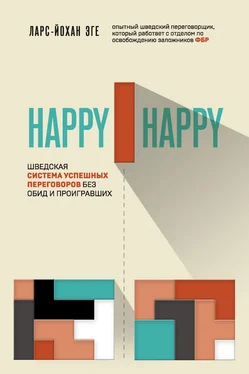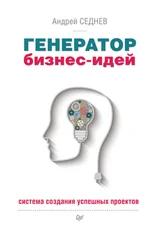The importance of thinking long-term. Ertel, D., Getting Past Yes – Negotiation as if Implementation Mattered. Harvard Business Review, One Point.
Глава 3. Немного о мозге
Emotional intelligence and your amygdala. Goleman, Daniel, (2006), Emotional Intelligence: Why It Can Matter More Than IQ, UK: Bantam Books.
The role of mirror neurones for empathy (the James Bond example). Keysers, C. (2011), The Empathetic Brain, Social Brain Press.
The difference between empathy and perspective-taking. Gilin, D., Maddux, W. W., Carpenter, J., & Galinsky, A. D. (2013), When to use your head and when to use your heart: the differential value of perspective-taking versus empathy in competitive interactions, Personal Social Psychology Bulletin, Jan, Vol. 39, No. 1, pp. 3–16.
Глава 4. Шаг 1: Позитивные эмоции
More about positive affect. Fredrickson, B. (2009). Positivity: Groundbreaking Research Reveals How to Embrace the Hidden Strength of Positive Emotions, Overcome Negativity, and Thrive. New York: Crown.
To permanently raise the positive affect with meditation. Fredrickson, B., Cohn, M., Coffey, K. A, Pek, J., & Finkel, S. M. (2008). Open Hearts Build Lives: Positive Emotions, Induced Through Loving-Kindness Meditation, Build Consequential Personal Resources. Journal of Personality and Social Psychology, Vol. 95 (5), pp. 1045–1062.
Loving-Kindness meditation. Salzberg, S. (1995). Lovingkindness – The Revolutionary Art of Happiness, Massachusetts: Shambala Publications Inc.
Smiling baseball players lived 7 years longer. Abel, E. L. and Kruger, M. L. (2010). Smile Intensity in Photographs Predicts Longevity. Psychological Science, Vol. 21, No. 4, pp. 542–544.
Глава 5. Шаг 2: Начинайте думать
In preparation for a negotiation. Simons, T. L., & Tripp, T. M., (1997), The negotiation checklist: How to win the battle before it begins. Cornell Hotel and Restaurant Administration Quarterly, Vol. 38, No. 1, pp. 14–23.
The importance of knowing what we want and how to get it. “What Roger Fisher Got Profoundly Right: Five Enduring Lessons for Negotiators.” Negotiation Journal, Vol. 29, No. 2, April, pp. 159–169.
Глава 6. Шаг 3: Налаживаем взаимоотношения
The FBI step model for crisis negotiation. Gregory M. Vecchia, Vincent B. Van Hasselt, and Stephen J. Romano, (2005), “Crisis (hostage) negotiation: current strategies and issues in high-risk conflict resolution,” Aggression and Violent Behavior 10.
Book by an FBI agent: The role of relationships and feelings in a negotiation. Voss, C., Raz, T., (2016) Never Split the difference – Negotiating as your life depended on it., New York: Harper Collis.
Asking questions strengthens the relationship. Huang, K., Yeomans, M., Brooks, A. W., Minson, J., & Gino, F. (2017), It Doesńt Hurt to Ask: Question-Asking Increase Liking, Journal of Personality and Social Psychology. Vol. 113, No.3, pp. 430–452.
You can get far by trying to understand. Cohen, S., Schulz, M. S., Weiss, E., & Waldinger, R. J. (2012). Eye of the beholder: The individual and dyadic contributions of empathic accuracy and perceived empathic effort to relationship satisfaction. Journal of Family Psychology, Vol. 26, pp. 236–245.
A classic work about the “As-If” principle. Vaihinger, H. (1935), The Philosophy of ‘As if’: a System of the Theoretical, Practical and Religious Fictions of Mankind. Translated by C. K. Ogden (2 ed.). London: Routledge & Kegan Paul.
The importance of not missing vital information (black swans). Bazerman, M., (2014), The Power of Noticing, New York, Simon & Schuster.
Глава 7. Шаг 4: Выбирайте слова
Create satisfaction by finding the interests behind demands. Pasquier, P. (2011), An empirical study of interest-based negotiation, Autonomous Agents and Multi-Agent system, March, Vol. 22, No. 2, pp. 249–288.
Influence, theory and practice. Cialdini, R. B., (2005), Influence – The Psychology of Persuasion, New York: Harper Collins.
Going past a ‘no’. Ury, W., (1991), Getting Past No – Negotiating In Difficult Situations. New York: Bantam Books.
The classic about social success. Carnegie., D., (1936), How to Win Friends and Influence People. London: Random House.
How words influence us and others. Newberg, A., & Waldman, R. (2014), Words Can Change Your Brain: 12 Conversation Strategies to Build Trust, Resolve Conflicts, and Increase Intimacy, New York: Plume.
Глава 8. Шаг 5: План «Б»
Why people become difficult to cooperate with. Fisher, R., Shapiro, D., (2005), Beyond Reason – Using Emotions as You Negotiate, New York: Penguin Books.
Difficult conversations about sensitive subjects. Stone, D., Patton, B., Heen, S., (2010), Difficult Conversations – How to Discuss What Matters Most, New York: Penguin Publishing Group.
Solving emotionally charged conflicts. Shapiro, D., (2016), Negotiating the Non Negotiable – How to resolve your Most Emotionally charged Conflicts. New York: Penguin Books.
Dealing with everyday confrontations. Thompson, G. J., Jenkins J. B., Verbal Judo: the Gentle Art of Persuasion, William Morrow Company.
Глава 9. Прежде чем мы начнем
Difficult people. Hansin, G., (2015), How to Deal with difficult People: Smart Tactics for Overcoming the Problem People in Your Life, London: Wiley.
More about narcissists. Jackson, T., (2017), How to handle a Narcissist, Kindle Edition.
What happens inside the brain of a psychopath. Meffert, H., Gazzola V., Boer, J. A. den, Bartels, A. A. J., Keysers, C. (2013), Reduced spontaneous but relatively normal deliberate vicarious representations in psychopathy. Brain Vol. 136, No. 8.
* * *

Программа переговоров (PON).
Bloom, N., Liang, J., Roberts, J., & Jenny Ying, Z. (2015). Does working from home work? Evidence from a Chinese experiment, The Quarterly Journal of Economics, Vol. 30, No. 1, pp. 165–218.
Вот почему исследователи из Корнелльского университета в Нью-Йорке, изучающие пожарных, обнаружили, что те, кто обедал вместе, выезжая на экстренные вызовы, гораздо слаженнее работают, чем те, кто подкреплялся в одиночестве.
Иногда меня спрашивают, возможно ли использовать мою систему в ситуации с заложниками. Я отвечу – да, пожалуй. Правда, после обезвреживания преступника он редко покидает место происшествия с улыбкой, тогда как те люди, которым удается спокойно поразмыслить над ситуацией, несмотря ни на что остаются довольны тем, как все разрешилось.
Hollander-Blumoff, R., & Tyler, T. R. (2008), Procedural justice in negotiation: Procedural Fairness, Outcome Acceptance, and integrative potential, Law and social inquiry, May, pp. 1–31.
Читать дальше
Конец ознакомительного отрывка
Купить книгу













